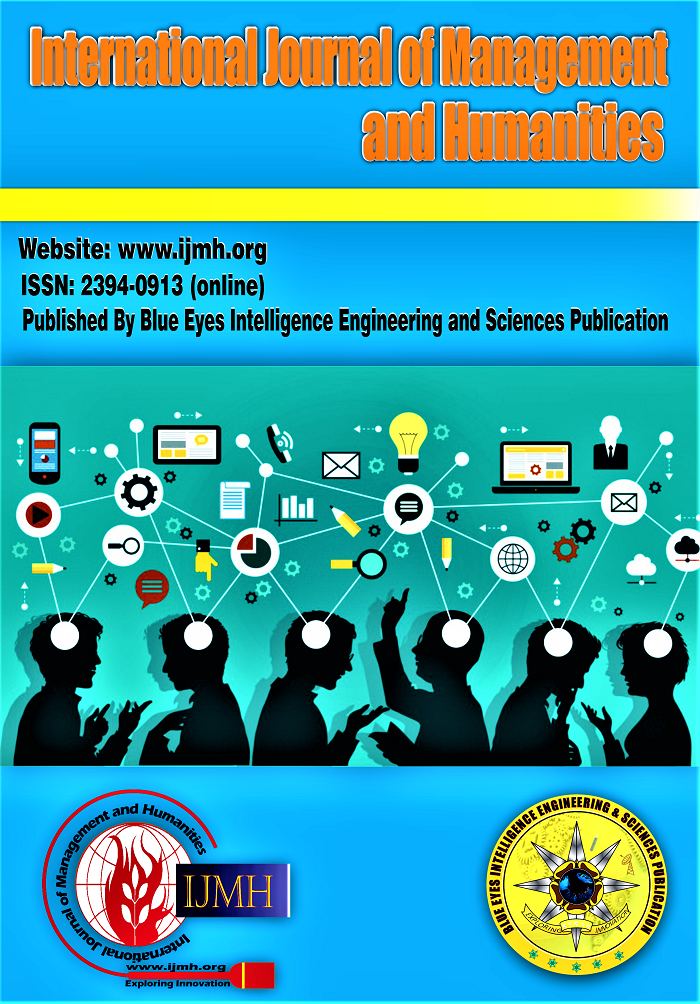Utilization of Traditional Methods and Strategies by Rural Individuals
Main Article Content
Abstract
The individuals, belonging to rural communities have one of the major goals of sustaining their living conditions in an effective manner. In order to achieve this goal, they are engaged in agriculture and farming practices. Furthermore, they are engaged in production and manufacturing processes of various products. In the production processes, they are utilizing different types of traditional methods and strategies. With advancements taking place and with the advent of modernization and globalization, individuals are augmenting information in terms of different types of pioneering methods and strategies. These are complicated as well as manageable and can be implemented in less amount of time or can be more time-consuming. Hence, it is necessary for rural individuals to acquire an efficient understanding of the concepts. In addition, one will render an important contribution in generating desired outcomes. In the present existence, rural individuals will bring about transformations in their overall quality of lives, when they will replace traditional methods and strategies by pioneering methods and strategies. Therefore, it is well-understood; utilization of pioneering methods over traditional methods and strategies has proven to be favourable to the individuals on a comprehensive basis. The main concepts that are taken into account in this research paper are, objectives of utilization of traditional methods and strategies, advantages of replacing traditional methods and strategies by pioneering methods and strategies and measures to be implemented in utilizing pioneering methods and strategies.
Downloads
Article Details
Section
How to Cite
References
Bhatia, S. (2013). Literacy and Adult Education in Independent India. Sonali Publications, New Delhi.
Continuing Education: New Policies and Directions. UNESCO. (1993). Retrieved January 14, 2024 from http://www.unesco.org/education/pdf/413_48a.pdf
Faulder, T.R. (2011). Technology Integration: A Research Based Professional Development Program. Cedarville University. Retrieved January 14, 2024 from http://files.eric.ed.gov/fulltext/ED525563.pdf
Gadus, J., Gadusova, Z., & Haskova, A. (n.d.). Specifics of Adult Continuing Education. Retrieved January 14, 2024 from http://www.ercim.eu/publication/ws-proceedings/DELOS9/Pap6.pdf
Information and Communication Technology (ICT) in Education in Asia. (2014). UNESCO. Retrieved January 14, 2024 from
Kapur, Dr. R. (2024). Generating Awareness Among Rural Individuals: Essential in Leading to Their Progression. In Indian Journal of Social Science and Literature (Vol. 3, Issue 3, pp. 32–37). https://doi.org/10.54105/ijssl.d1126.03030324
Kapur, Dr. R. (2024). Understanding the Areas, Where Approaches to Rural Development are Implemented. In Indian Journal of Economics and Finance (Vol. 3, Issue 2, pp. 85–90). https://doi.org/10.54105/ijef.a2576.03021123
ICT based Brain-Compatible Teaching in Adult Education. (2019). In International Journal of Innovative Technology and Exploring Engineering (Vol. 8, Issue 12S, pp. 459–462). https://doi.org/10.35940/ijitee.l1114.10812s19
Nataliia, M., & Inna, V. (2020). Interactive Methods of Teaching the Humanities in Higher Education Institutions. In International Journal of Management and Humanities (Vol. 4, Issue 12, pp. 53–57). https://doi.org/10.35940/ijmh.l1099.0841220





